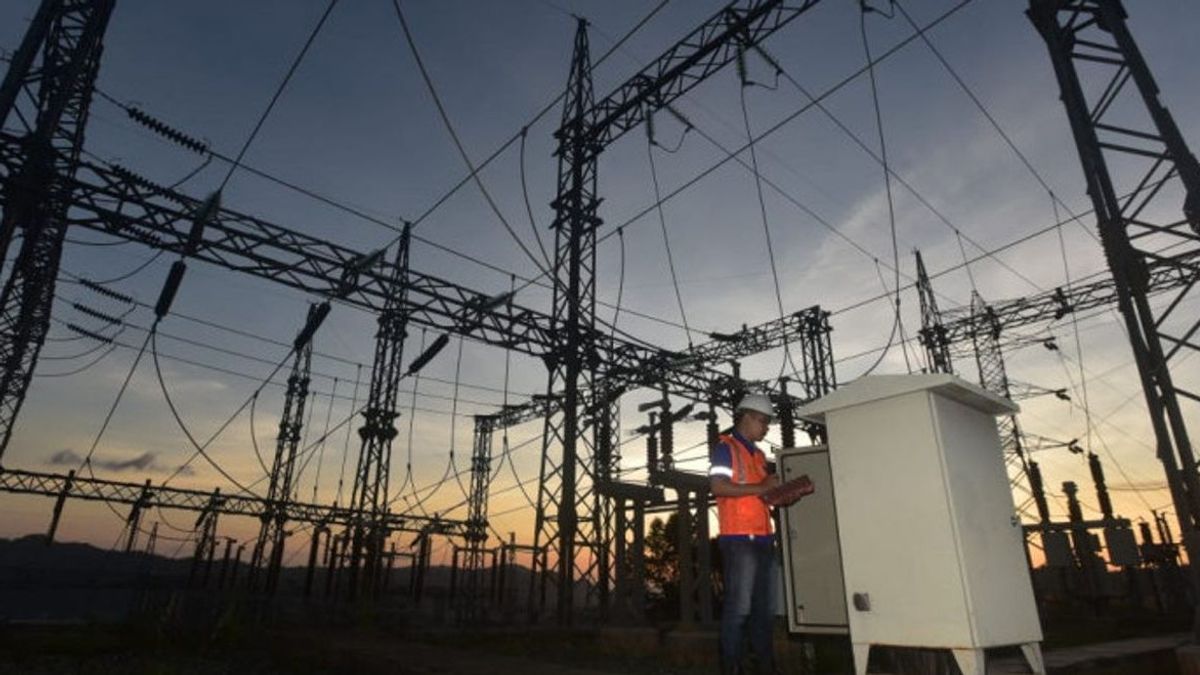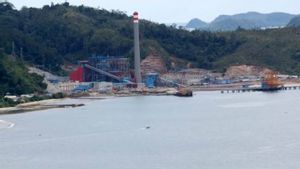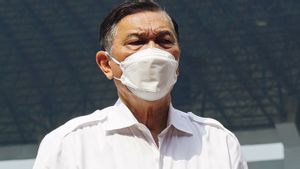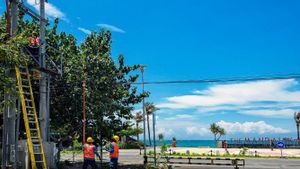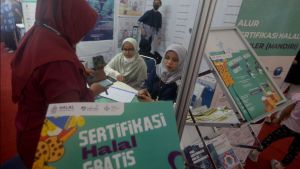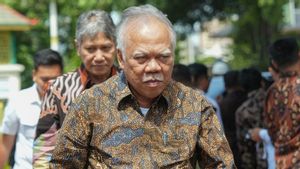JAKARTA - President Director of PT PLN (Persero), Darmawan Prasodjo, has prepared steps to maintain coal supply so that there is no longer a shortage. One of them is by developing a coal monitoring application that is currently at PLN, namely online coal into a digital super system.
Darmawan explained, this digital monitoring system can provide early warnings regarding the availability of coal that is approaching a certain level, coal loading queue systems, and even real-time monitoring of supplier data in delivering coal according to contractual commitments.
All administrative systems are digitally verified, legally, and legally used. This monitoring system is also integrated with the system at the Directorate General of Mineral and Coal, Ministry of Energy, and Mineral Resources.
"This system gives an alarm to the center of the coal stock is running low. This system also detects the H-10 period of the demanding deadline", said Darmawan, quoted Wednesday, January 12.
This system also ensures the availability of transport vessels. Monitoring is carried out in real-time to see where the ship is moving and monitor the loading and unloading time at the generator.
"The system will show point-to-point suppliers. This real-time system can be directly checked by the central PLN and the Directorate General of Mineral and Coal", said the man who is familiarly called Darmo.
In addition to improving the monitoring system, Darmawan also revamped the coal purchase contract. He ensured that PLN entered into long-term contracts with miners who have the credibility to supply by the quality and specifications as well as the volume according to the needs of the power plant.
PLN also conducts a contractual evaluation, in which flexibilities that create uncertainty in the fulfillment of coal supply will be minimized.
According to Darmawan, the flexibility of this contract was intended to anticipate fluctuations in electricity demand that would affect the demand for coal supply. So that it is hoped that PLN will have more certainty about the availability of primary energy from coal and that PLN's interest in providing electricity reliably to meet national needs can be realized.
"Given the long-term nature of the PLTU operation, PLN also needs to secure the availability of coal in the long term", Darmawan added.
In addition, PLN has also changed the purchase of coal from previously partially through sellers to direct purchases from miners. The purchasing scheme has also been pushed to Cost, Insurance, and Freight (CIF/purchase coal at a price to arrive at the destination), thus ensuring that everything gets to its destination better.
To avoid a repeat of the coal supply crisis, in the short term PLN continues to ensure that all coal supply executions run smoothly in the field. It doesn't just stop at the commitment, but how this coal arrives at the generating units with an accurate timeline.
SEE ALSO:
"We are also coordinating with all parties to ensure that the volumes are fulfilled one by one, the transport fleet is available, then how to increase the speed and effectiveness of loading and unloading coal transport vessels at the PLTU", said Darmawan.
PLN also continues to increase cooperation and collaboration with ship entrepreneurs.
Darmawan ensured that the collaboration with INSA (Indonesian National Shipowners' Association) that had been well established so far would be maintained. According to Darmawan, to be able to produce reliable electricity for the community requires cooperation and collaboration from all parties.
Darmawan added that PLN also carried out several extraordinary efforts to accelerate business processes carried out through a line-up scheme of each per generating unit. Thus, it is certain that coal receipts in this situation will run effectively, faster, and with certainty.
"We are strengthening from the point of view of the supply chain, management, then also the monitoring system, then how we summarize the convoluted process we unpack and simplify, so that it becomes a more effective aspect chain", said Darmawan.
Regarding prices, coal is a commodity that is regulated by the government based on a decree from the Minister of Energy and Mineral Resources. Based on the decision, the price of coal for electricity is limited to US$70 per tonne.
The English, Chinese, Japanese, Arabic, and French versions are automatically generated by the AI. So there may still be inaccuracies in translating, please always see Indonesian as our main language. (system supported by DigitalSiber.id)
